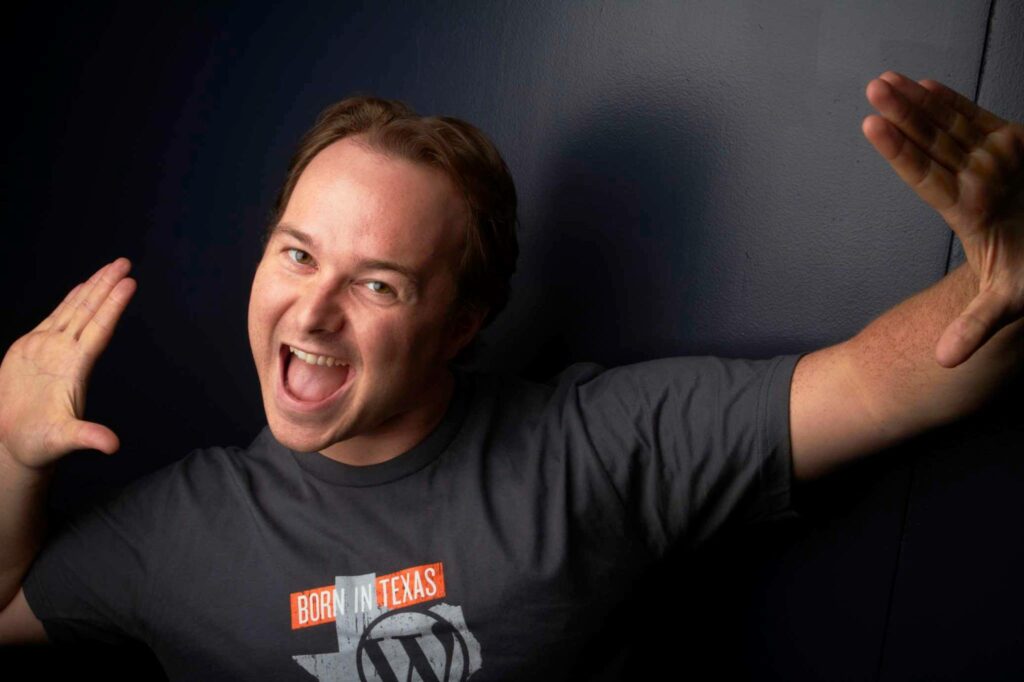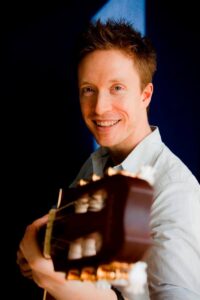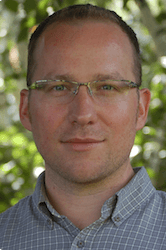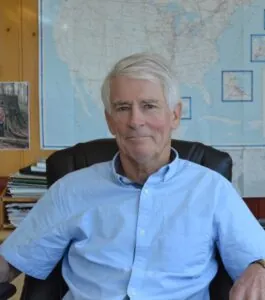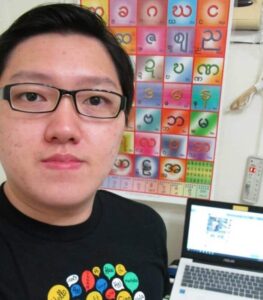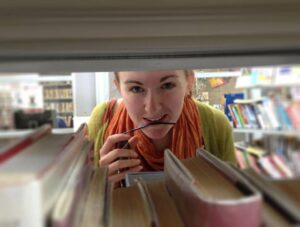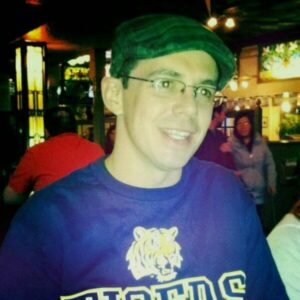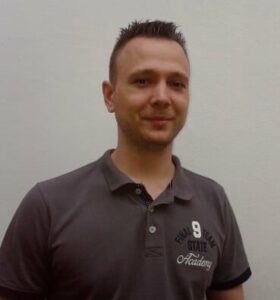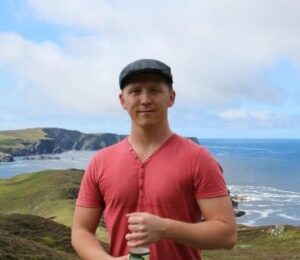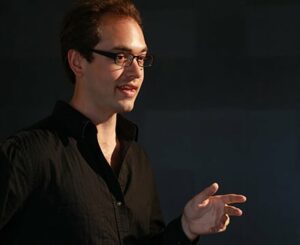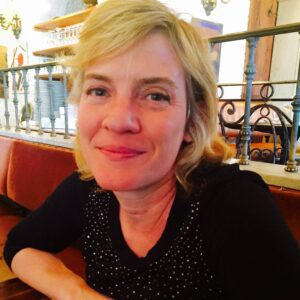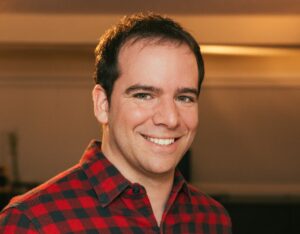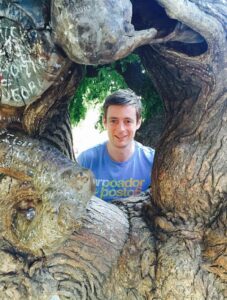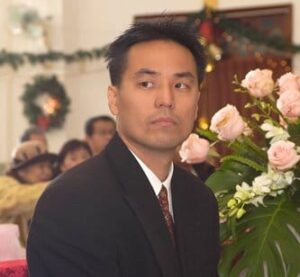18 Polyglots Reveal Their Language Learning Eureka Moments
We all have them, those “aha!” moments when the mists of uncertainty part and we finally understand. Archimedes’ moment apparently had him running through the streets of Syracuse naked (he had been enjoying a relaxing bath moments before) shouting “eureka!”. Most of us aren’t trailblazing mathematicians, so perhaps our eureka moments aren’t quite as dramatic, but we have them nonetheless. These moments help us to keep on going with a goal. They renew our motivation and remind of us why we made the goal in the first place.
Even though language learning is a long process, eureka moments can happen. We asked 18 polyglots (including LingQ co-founder Steve Kaufmann) what their most memorable eureka moments are. Here’s what they shared:
Benny Lewis
“For me the eureka moment came during a challenge I gave myself to avoid using English and just speak Spanish. I was living in Spain at the time, but had not actually picked up more than a few words of Spanish because of the English-speaking expat bubble. After many attempts at different approaches over the months, I was starting to get convinced that I just didn’t have it in me to learn the language.
The “no English” project was really frustrating until one day two weeks into the experiment, an electric toothbrush I bought just the day before broke. I was so annoyed (when you’re broke, €10-15 is a lot to waste!) that I stormed out of my home, into the supermarket and found a manager to request a refund… when I realized that I didn’t know the word for “toothbrush”, “broken”, “refund” or pretty much anything else you’d need in a situation like this. If I planned it out in advance, I could have studied every aspect of the potential conversation, but instead I had to say something – anything I possibly could. I blubbered out a “Perdón… diente… máquina… malo! Dinero ida y vuelta? (Sorry, tooth machine bad! Money round trip?) Miraculously, this “Tarzan Spanish” resulted in me getting my money back, and I realized that I didn’t have to be afraid to speak until I understood the language perfectly to be able to use it; that even broken Spanish is better than no Spanish.
This was a huge boost of confidence for me, and upon seeing that Spaniards were actually extremely patient and friendly with my stumbles, it gave me permission to practise every day with real people. This changed everything, and combined with my studies between opportunities using the language, my ability to converse got me progressing much faster, and I kept going until I reached a level of mastery that allowed me to work as a professional translator, obtain C2 level certification from the Instituto Cervantes, get interviewed on live Spanish radio and much more. None of that would have been possible if I waited until my Spanish was perfect before ever using it, so I’m extremely grateful for this single realization that completely changed my life!”
– Benny is publishing Spanish, French, Italian and German courses this year with Teach Yourself. Check them out here. Benny will be speaking at this year’s North American Polyglot Symposium.
Olly Richards
“My eureka moment actually came from a “failure”. I learnt my first few languages very naturally, speaking with friends and joining local communities. When I moved to Japan, however, things were different. I was quite isolated in my life in Tokyo, and worked in an English speaking environment. As a result, I tried to learn Japanese from books and classes alone. Progress was painfully slow, and after two years in Japan I still couldn’t speak with any confidence. I thought carefully about my situation and realised there was one thing I hadn’t been doing: Speaking. From that moment, I spent all my free time speaking with language partners and joining events where I could speak the language. Within a matter of weeks, my confidence went through the roof and I suddenly felt I could really speak the language. After that, all my language endeavours are now focused on speaking the language with people from an early stage (in combination with more formal study, of course).”
– Check out Olly on Twitter @Olly_IWTYAL and Youtube. Olly will also be speaking at this year’s North American Polyglot Symposium.
John Fotheringham
“In 1992, I traveled to São Paulo, Brazil for a 2-week home stay. This was my first time ever leaving the U.S. or having any real exposure to foreign languages (or the people who speak them). As a 12-year-old unaccompanied minor, I had to be escorted by a flight attendant while changing planes. With less than 10 minutes to run to the next plane during a connection in Rio de Janeiro, an attractive female flight attendant grabbed my hand and literally pulled me down the walkway. While running, she entered into an angry diatribe for a few minutes (I can only assume it centered around her frustrations about having to look after me), at which point I finally said, “I’m sorry, I don’t speak Portuguese.” She looked at me with “you-stupid-uncultured-American” disgust, and said, “Yah, obviously.” From that moment on, I vowed to learn the language of every country I visit.”
– Follow John on Twitter @LanguageMastery
Steve Kaufmann
“Language learning is an endurance sport. Eureka moments are both slow to develop and fleeting. But when I became a full time university student in France as a 19 year old, studying, writing, discussing, and debating in French, I realized that I had become fluent in another language. It was a eureka experience because it was something that I had not thought possible before that. Since then I have never doubted my ability to do so again, and again.”
– Check out Steve’s Youtube channel or follow him on Twitter @lingosteve. Steve will also be speaking at this year’s North American Polyglot Symposium.
Simon Ager
“I first learnt some Welsh in 1998 when applying (unsuccessfully) for a job at Bangor University. In 2003 while on holiday in Portugal I meet some native Welsh speakers and tried to speak Welsh to them, but soon ran out of things to say. After returning home I resolved to become fluent in Welsh, and started studying regularly, listening to Welsh radio online, and reading Welsh books. In 2007 I did a summer school in Welsh at the University of Wales, Lampeter. At the start of the course I was very hesitant about speaking Welsh, but after two weeks I was chatting away happily – that was perhaps a eureka moment for me. Since then my Welsh has continued to improve, and since 2008 I’ve been living in Wales and use the language regularly.”
– Check out Simon’s YouTube channel or follow him on Twitter @Omniglossia. Simon will also be speaking at this year’s North American Polyglot Symposium.
Teddy Nee
“Growing up in a multicultural society and having learned several foreign languages at school did not make me interested in languages at all in the beginning. But when I became a university student, studying with classmates from around the world, I started to realize the importance of foreign languages and I also saw opportunities to use these foreign languages in real life at the same time. Since then, my language learning journey continues until today.”
– Like Nee’s Language Blog on Facebook or follow him on Twitter @tdnee
Lindsay Dow
“When I was studying for my Spanish A level, I would listen to as much Spanish as possible. Podcasts, audio courses, the radio, music, anything. One of my favourites at the time was the album Mi Sangre by Juanes, which I remember listening to every time I would clean the bathroom! One day I was scrubbing away when I realised I was singing along almost word for word. It was a moment of “Oh! Hang on a minute! I’m doing this thing!” before carrying on with a smile on my face.”
– Follow Lindsay on Twitter @LDLanguages or like her page on Facebook. Lindsay will be speaking at this year’s North American Polyglot Symposium.
Bill Price
“My eureka moment in Language Learning came about a year after I started learning German, my first real foreign language from scratch.
I went to a meetup group for German speakers to test my level and to really speak in a social environment for the first time. I was so nervous that I wouldn’t be able to understand anything anyone was saying to me. Turns out, I had a great time once I relaxed and just let myself communicate rather than trying to focus on remembering declinations or tenses or cases.
This taught me the most important lesson I think anyone can learn about Language Learning, which is that language at its core is just communication. Nothing more, nothing less. Focus on communicating and the rest will fall into place. “
– Follow Bill on Twitter @HTLanguages or like his page on Facebook
Josh Teeters
“I think my favourite eureka moment was about eureka moments. It struck me that such moments, those brief but powerful moments during your studies when you feel like the clouds part and you understand quite a bit more than you realized – those moments are built by the learner. I know some people liken eureka moments to almost magical events, outside of anyone’s control, but I think that does a disservice to the learner. Eureka moments are constructed by adding piece by piece to your knowledge. Learning more and more of your target language, and trusting that you’re making headway, even if sometimes it feels like you aren’t. The more pieces you have in your possession, the more likely some of them will click together, and that is when you have a eureka moment. Knowing that those moments are, essentially, in your hands – that you can make them happen just by staying the course – I think that’s empowering. Don’t wait for the eureka moments; build them.”
– Check out the Language Geek page on Facebook
Noel van Vliet
“I think these Breakthrough moments are important especially for the beginner language learner. They can be used as a great motivational tool. They can instantly lift your spirits and let you know that all the work you do to learn another language does pay.
I’ve always artificially created them. I would use something as simply as a song I intended to not listen to for a few months while I kept working on improving my target language. Then when I would hear it again I always understood a lot more of the lyrics. You can do the same with spoken audio or even a page or two from a book.
The Breakthrough moments not only can bring you new motivation that lasts for months, it can also help you see that a periodic slump is nothing to worry about… and that ultimately neither are Breakthrough moments!”
– Follow Noel on Twitter @NoelVanVliet
Nathalia Cianci Gishitomi
Polyglot Nerd
“I studied English since the first grade in school and hated it. My eureka moment happened when I realized that I never hated English, I just didn’t understand it. After learning English, I started enjoying all the things I used to hate when I was school like reading and even learning some grammar concepts. Later, I had “hate moments” with French and German, but thanks to my Eureka moment with English, I knew I didn’t really hate these languages, I just didn’t fully understand them (yet).”
– Follow Nathalia on Twitter @polyglotnerd or like Polyglot Nerd on Facebook
Donovan Nagel
“I’ll never forget the eureka moment I had learning Arabic – the first language I became fluent in.
I had been gradually learning Arabic over a fairly long period (using what I now know were not the most effective strategies) and I was constantly frustrated that communication always felt like such a struggle. Listening comprehension was especially challenging.
But one day I was sitting in a friend’s house in Cairo, Egypt while his family were having a conversation in Arabic and I remember it hitting me suddenly: ‘Wow… I understand everything these people are saying and I don’t even have to try!’
It was so natural that I didn’t need to try and decipher it – I understood it as if it were my own language. I was so focused on what they were talking about that it took me a while to realize that I was hearing and understanding a language other than my native one.
I think once I let go of grammar rules and trying to piece all it all together, the language finally came alive to me.
This was a pivotal moment in my learning, not just with Arabic but with language learning in general and has made every subsequent language significantly easier to learn.”
– Subscribe to Donovan’s channel on YouTube or like the Mezzofanti Guild page on Facebook.
Gabriel Wyner
“Language learning is an endurance sport, and doesn’t come in sudden insights. That said, for me, I basically created my current learning method before actually knowing whether it would work. My “eureka” moment would be the moment I had to put it to the test, in my first conversation, and during that moment, I realized that I could actually carry on a French conversation.”
– Follow Fluent Forever on Twitter @Fluent Forever or subscribe to the YouTube channel.
Ellen Jovin
“I studied three foreign languages when I was a student, but after graduation, my skills faded with each passing year. I had always thought of language study as something that required a teacher and a class. My breakthrough moment came late, in my forties, on July 1, 2009: the day that I went to the library, found a bunch of self-study materials, and realized you can learn foreign languages on your own. Since then I have studied 20 different languages at my own pace and in my own way, and my daily life is filled with word joy.”
– Follow Ellen on Twitter @EllenJovin or like her page on Facebook.
Jan van der Aa
“I was always interested in learning languages but unfortunately I wasn’t very good at it in school. I failed for most of my English exams and my English teacher recommended me to choose a career for which I wouldn’t need any foreign languages. It wasn’t until I got to hang out with English speakers in Costa Rica when I was doing volunteering work there at age 19.
For the first time I was using a foreign language on a daily base and within a few months I was pretty fluent. It was only then that I found out that languages can’t be taught, you need to learn them yourself by speaking them, a lot!”
– Subscribe to Jan’s YouTube channel or add him on Facebook.
Gabriel Silva
“Learning languages often feels like hiking up a mountain to me. After enduring the hike (which, of course, can be both highly enjoyable and strenuous), few things compare to the moment when you feel you’ve reached the summit. To me, the summit doesn’t mean absolute fluency or mastery, but simply the point where you realize you’ve become comfortable enough with the language (although it’s important to note that my analogy is quite limited since there never truly is a summit in language learning – we can always keep going higher). When I reached that moment learning German it felt great… Especially because sometimes I felt like I would never be able to reach a good level in it due to its relatively complex grammar. So one day I was at a party in Germany talking to a few people and suddenly I realized: “Woah, ok. I speak German now. I don’t have to go back to English or come to a complete halt in the conversation trying to conjure up words I don’t know.” And… Now I’m addicted to trying to reach that level in many other languages.”
– Subscribe to the Fluent ASAP YouTube channel or like the Facebook page.
Conor Clyne
“A few years ago, I had a dream of moving to Brazil and began learning Portuguese in order to find a job as a lawyer there.
I remember when I started out learning Portuguese that it was surprisingly difficult for me even though I already spoke decent Spanish. I took private lessons via Skype two hours per week for two years. I really struggled in the beginning and was exhausted by the end of each lesson.
Two years later I went to São Paulo and interviewed in law firms exclusively in Portuguese. The feeling was amazing!
I had my eureka moment when I was sitting in the middle of one of the interviews at a leading Brazilian law firm and realized the extent of what I had achieved in just two years. All the effort was worth it in that one moment!”
– Subscribe to the Language Tsar YouTube channel.
Tetsu
“I was intrigued by my Japanese friends telling me that they couldn’t clearly distinguish many English letters spoken to them. So I asked them to close their eyes while I said: “light field”, “right field”, “base”, or “vase”, and it was immediately clear that they couldn’t differentiate the L from the R or the B from the V. For someone who had previously believed that muscles required for speaking were the main culprits in bad pronunciation, this was an eureka moment as I found out that one needs to “hear” sounds adequately in order to even have a chance at pronouncing correctly.
In her 2010 TED talk The Linguistic Genius of Babies”, Patricia Kuhl discusses how all babies are able to discriminate all the sounds in all the languages, but this magical ability gets lost as they grow up. My mother knew about this already back in the 70’s, so she intentionally raised me in a multilingual environment, believing firmly that it will allow my ears to “remain open” later in life to sounds produced in other languages. And it worked.Today, I am raising my own children the same way I was raised, passing on to them the 5 languages that I speak fluently (English, French, Japanese, Mandarin, and Spanish).”
– Tetsu will be giving a talk on raising multilingual children at the North American Polyglot Symposium in Montreal on July 23-24.
What is a polyglot? Check out polyglot and LingQ cofounder Steve Kaufmann’s blog post to find out!

